 The Black Freedom Struggle often finds itself being pulled in multiple directions all at once. We must navigate the political intrigues of two dominant political parties that take turns trying to convince us they are our only true friends (Democrats in the areas of voting rights, police accountability and anti-discrimination statutes, Republicans in the areas of gun rights, Straight Black Pride and pull-up-by-your-bootstraps economic independence, though both sides often lie about these things) and enacting policies that make us believe they actually wish for our marginalization or even outright destruction (support for corporate interests that abuse our communities, overthrow and murder of Afrikan, Central American and South American leaders that do not obey the orders of Washington). We must try to make sense of the many and often tangled organizations that, despite their common concern for a free, prosperous, self-determining and safe Black Community, seem to often be at odds with each other as to how to accomplish that allegedly common goal. We are concerned about our livelihoods and the access to employment, although we often see that the industrialized society that provides us sustenance is also responsible for the slow (and not-so-slow) destruction of the very planet on which we depend for our lives.
The Black Freedom Struggle often finds itself being pulled in multiple directions all at once. We must navigate the political intrigues of two dominant political parties that take turns trying to convince us they are our only true friends (Democrats in the areas of voting rights, police accountability and anti-discrimination statutes, Republicans in the areas of gun rights, Straight Black Pride and pull-up-by-your-bootstraps economic independence, though both sides often lie about these things) and enacting policies that make us believe they actually wish for our marginalization or even outright destruction (support for corporate interests that abuse our communities, overthrow and murder of Afrikan, Central American and South American leaders that do not obey the orders of Washington). We must try to make sense of the many and often tangled organizations that, despite their common concern for a free, prosperous, self-determining and safe Black Community, seem to often be at odds with each other as to how to accomplish that allegedly common goal. We are concerned about our livelihoods and the access to employment, although we often see that the industrialized society that provides us sustenance is also responsible for the slow (and not-so-slow) destruction of the very planet on which we depend for our lives.
And then we come to the area of world affairs, where two communities with which Black People often been allied but have also had a stormy relationship find themselves locked in a centuries-old struggle, one that even goes back to the Bible and the Q’uran. Jews, who faced their own genocide at the hands of Hitler’s Nazi Germany, have stood up to the Ku Klux Klan and the Nazis alongside us, even dying with us in the Freedom Rides. We weep for the victims of suicide bombings and terrorist attacks. We also weep for those whose communities are constantly subjected to a state of modern-day apartheid and slavery that inspires those very same terrorist attacks in response. We see, in the repression of the Palestinians and the West’s wars against Iraq and Iran, similar acts of oppression and genocide that were committed against us. But we have also fumed at the loss of Black businesses in our neighborhoods, often replaced by businesses run by the very people, on both sides, with whom we have felt solidarity in the past. And, when political power has been obtained, we often feel we are being left out by our erstwhile allies who, in some cases, have suddenly become adversaries.
Most, if not all, of these misgivings, however, vanish when we see an entire people being subjected to what we can only describe as acts of genocide from an overwhelming military force. The scenes of elders, women and children huddled in blankets, often covered in their own blood, in the lobby of a hospital, or the sight of a collapsed building which we know has entombed entire families that medical and rescue workers already know they will not reach in time to save them all leave us in a state of heartbreak, outrage and helplessness. All the while, representatives of a global power use the history of genocide and terrorism they have faced to justify acts of stomach-turning barbarity in reprisal for the acts of “militants”, using the doctrine of justifiable self-defense to make a case for the collective punishment of a people that claims eight to ten times the number of casualties they have suffered.
For many of us, it’s enough of a challenge to break away from our own lives and allow ourselves to feel these people’s pain. It is another thing to try to understand what is happening and why, and what we, with our limited knowledge, limited resources and infinitesimal power, can do about it.
Fortunately, there are researchers and activists who can help us gain some small understanding of what is happening, so we can begin to formulate a way forward out of the madness. We will begin our effort to introduce you to some of them here.
Heather Gray (; https://myemail.constantcontact.com/About-Heather-Gray.html?soid=1109359583686&aid=DJnBqKIsFlM; hmcgray@earthlink.net) is the founder of Justice Initiative, an important source of news and analysis on issues of human rights and resistance in the United States and around the world. The conflict between Israel and Palestine, which in reality is now an Israeli assault upon the overwhelmingly-civilian population in Gaza, in her words, “is taking its toll on me as I assume it is for many of you.”
At this writing, close to 8,500 Palestinians have been killed in the unrelenting Israeli attacks, including an estimated 2,500 to 3,500 children. (Those numbers could be much higher by the time you read this.) While the government of Israel insists the assault is necessary to ensure the safety of Israeli citizens after the October 7 attack by a faction of Hamas that reportedly killed 1,400 people and took another 200 hostage, international observers are calling the Israeli military retaliation against civilian targets in Gaza a gross violation of international law. As Justice Initiative continues its voluminous release of information and analysis on this conflict, Ms. Gray has reached out to those who are directly impacted by the ongoing violence and those with relevant analysis to share their thoughts with her. Her appeal is below. In the meantime, she has herself shared numerous analyses and historical pieces on Israel, Zionism, Palestine, the Oslo Accords that were supposed to have ushered in a solution to the Israel-Palestine conflict and brought about a lasting peace some 30 years ago, and how that hopeful solution crumbled in the rubble of acrimony, oppression and violence that has been referred to by a long list of international analysts, including former US President Jimmy Carter, as a system of apartheid.
This is the appeal for comments from Ms. Heather Gray:
United Nations Comments on the Middle East conflict
Dear all:
I am seeking comments from readers about the Middle East conflict. If you could please share your thoughts and/or additional articles about this conflict and please send them to me at: hmcgray@earthlink.net.
Also, on October 26 the United Nations General Assembly held a meeting of all members of the United Nations to discuss this conflict. Click here to listen to this 3 hour long gathering to discuss this tragic conflict from what appeared to be comments from all the members of the United Nations from throughout the world. Here is the YouTube link yet again and also the commentary from the YouTube posting of this UN meeting does not begin until about 12 minutes into the video.
Below is also the narrative from the UN regarding this October 26, 2023 UN meeting. The narrative was taken from the UN YouTube posting.
Heather Gray
Justice Initiative
October 28, 2023
Ms. Gray also posted a report, as she mentioned above, on the recent United Nations resolution calling for a cease-fire, the provision of emergency aid to Gaza and the release of the hostages currently being held by the Hamas faction that had initiated the confrontation on October 7. The resolution was overwhelmingly supported over the weekend of October 27 by the UN member states, but among the relatively few dissenters were, as many expected, Israel and the United States.
UN General Assembly adopts Gaza resolution calling for
immediate and sustained ‘humanitarian truce’

General Assembly: Tenth emergency special session (resumed), 39th plenary meeting
October 26
Illegal Israeli actions in occupied East Jerusalem and the rest of the Occupied Palestinian Territory (Item 5).
The United Nations General Assembly, in New York, is holding an emergency special session on the Israel-Palestine conflict, amid a continuing deadlock at the Security Council.
Opening the meeting today (26 Oct), the President of the General Assembly, Dennis Francis, said, “I urge the membership to use today’s session not to further fan the flames of hate, division, and revenge. Let us seize the opportunity, instead, to unify our purpose and our actions to save lives and to end violence.”
The Permanent Observer to the UN of the State of Palestine, Riyad H. Mansour, noted, “7,000 Palestinians have been killed by Israel in the last two weeks. 70 per cent of all those killed are women and children. Almost all killed are civilians. Is this the war some of you are defending? Let me repeat, is this the war some of you are defending? Can this war be defended?
Mansour concluded, “Finally, I appeal to all of you – vote to stop the killing. Vote for humanitarian aid to reach those whose very survival depends on it. Vote to stop this madness. You have a chance to do something. To give an important signal. Choose justice not vengeance. Choose to defend the law not justify its breach. Choose peace not more wars.”
The Permanent Representative of Israel, Gilad Erdan, called the events of October 7 a “massacre” and said that what ensued “has nothing to do with the Palestinians.”
Erdan continued, “Nothing. It has nothing to do with the Arab-Israeli conflict, or the Palestinian question. This is not a war with the Palestinians. Israel is at war with the genocidal-jihadist Hamas terror organization. Only. It is the law-abiding democracy of Israel against modern day Nazis.
Addressing Member States, the ambassador asked, “Do you not think it’s unbelievable that this resolution here today and this session are not solely focused on Hamas’ atrocities? When reading this resolution, Hamas seems to be missing in action. The drafters of the resolution claim to be concerned about peace, yet the depraved murderers who initiated this war are not even mentioned in the resolution. Are not even mentioned. They see each one of you as puppets.”
The Deputy Prime Minister and Minister of Foreign Affairs and Expatriates of Jordan, Ayman Safadi, noted that his country had introduced a resolution to be voted on at the end of the session.
Safadi said, “It is at such times of cruelty, inhumanity and total disregard for international law that we must speak out clearly and unequivocally. There is no room for gray areas here. We must stand for life, for justice, for peace. We must stand against this war on Gaza. And the humanitarian catastrophe it is causing. We must stand on the side of our human values and for the charter of these United Nations. History will judge us.”
The Minister of Foreign Affairs of the Islamic Republic of Iran, Hossein Amir-Abdollahian, also participated in the meeting, saying, “Today in New York, and the United Nations, I say frankly, to the American statesmen, who are now managing the genocide in Palestine, that we do not welcome the expansion of the war in the region. But I warn – if the genocide in Gaza continues, they will not be spared from this fire. It is our home and West Asia is our region. We do not compromise with any party and any side, and we have no reservation when it comes to our homes’ security.”
The emergency session takes place after the Security Council failed on Wednesday to adopt two resolutions on addressing the humanitarian crisis. China and Russia vetoed a United States-led draft resolution and a second Russian-backed resolution failed to secure sufficient votes in favour.
This followed failures for unity at the Council, last week. A Russian-led draft resolution calling for an “immediate humanitarian ceasefire” was voted down last Monday and the following Wednesday, the US vetoed a Brazilian-led text that urged “humanitarian pauses” to deliver aid to millions in the Gaza Strip.
More from the International Community
An article on the open-source research site Wikipedia (https://en.m.wikipedia.org/wiki/International_reactions_to_the_2023_Israel–Hamas_war) also describes the reactions of members of the international community:
On 7 October 2023, a large escalation of the Gaza–Israel conflict began with a coordinated offensive by multiple Palestinian militant groups against Israel. A number of countries, including many of Israel’s Western allies, such as the United States and a number of European countries, condemned the attacks by Hamas, expressed solidarity for Israel and stated that Israel has a right to defend itself from armed attacks, while countries of the Muslim world (including the Axis of Resistance) have expressed support for the Palestinians, blaming the Israeli occupation of the Palestinian territories as being the root cause for the escalation of violence. The events prompted several world leaders to announce their intention to visit Israel, including US President Joe Biden,[1] French President Emmanuel Macron,[2] German Chancellor Olaf Scholz,[3] and British Prime Minister Rishi Sunak.[4]
Numerous countries called for a ceasefire and de-escalation. International organizations, students organizations, charities, ecumenical Christian organizations, and Jewish and Islamic groups commented on the situation. On 27 October 2023, the United Nations General Assembly passed a resolution calling for an immediate and sustained humanitarian truce and cessation of hostilities, adopted by a vote of 121 states to 14, with 44 abstentions.[5]
Again, notable among the votes opposing the cease-fire and delivery of humanitarian aid to Gaza were Israel and the United States.
What triggered this military assault?
According to another Wikipedia article on the Israel-Hamas War timeline (https://en.m.wikipedia.org/wiki/Timeline_of_the_2023_Israel–Hamas_war), the Israel-Hamas War, as it has been called, was triggered by an assault that, according to the Israeli Defense Forces, included the firing of hundreds of rockets and killed over 1,400 people and kidnapped two hundred, launched by Palestinian militant groups associated with Hamas on Israeli settlements and a music festival near Gaza:
The 2023 Israel–Hamas war began on October 7, 2023 when Hamas launched an unprecedented multi-faceted and sustained assault on Israel from the Gaza Strip, on the 50th Anniversary of the Yom Kippur War.
Ms. Gray also shared an article by Michael Chossudovsky (“Justified Vengeance” and the Invasion of Gaza: Palestine Is Portrayed as “The Aggressor”), which we are linking to for anyone who wants to read it in its entirety. Chossudovsky gives an analysis of the Israel-Palestine conflict, describes the Israeli assault on Gaza as “a criminal undertaking based on Israel’s doctrine of ‘Justified Vengeance’ which was first formulated in 2001”, and further states that the October 7 attack that precipitated this escalation in the conflict was actually a “false flag” operation by “a faction” of Hamas that was in contact with the Israeli Mossad, all part of a larger plan to first isolate Gaza from the West Bank, weaken the West Bank, then justify a military operation against Gaza to take control of the entirety of Israel and Palestine, all under the direction of Israeli Prime Minister Benjamin Netanyahu and his regime.
The “Justified Vengeance” doctrine propounds in no uncertain terms that (despite its limited military capabilities) Palestine rather than Israel is “the aggressor” and that Israel has the right to defend itself.
This doctrine of “Justified Vengeance”, however, bears all the hallmarks of a justification of “collective punishment” to be aimed at the Palestinian civilian population, including threats to bomb hospitals, which are blatant violations of international law and ventures into the realm of acts of genocide.
But, wasn’t the Israeli-Palestinian issue supposed to have been solved decades ago? Weren’t the efforts of President Jimmy Carter in the 1970s (with Israeli leaders Menachem Begin and Egyptian President Anwar Sadat) and then President Bill Clinton in the 1990s (with Israeli Prime Minister Yitzak Rabin and Palestinian Liberation Organization leader Yasser Arafat) supposed to have solved the issues of Israel’s hostilities with its neighbors and with Palestine, ushering in a new era of Middle East peace?
The Oslo Accords: 30 Years of Dashed Hopes
The Middle East-oriented Al Jazeera news network published an article on September 13, 2023, What were the Oslo Accords between Israel and the Palestinians?, https://www.aljazeera.com/news/2023/9/13/what-were-oslo-accords-israel-palestinians. Here is an excerpt from that article:
What were the Oslo Accords?
The first Oslo Accord, known as Oslo I, was signed on September 13, 1993. The agreement between the Israeli and Palestinian leadership saw each side recognise the other for the first time. Both sides also pledged to end their decades-long conflict.
A second accord, known as Oslo II, was signed in September 1995 and went into more detail on the structure of the bodies that the peace process was supposed to form.
The Oslo Accords were supposed to bring about Palestinian self-determination, in the form of a Palestinian state alongside Israel. This would mean that Israel, which was formed on the land of historic Palestine in 1948 in an event Palestinians know as the Nakba, would accept Palestinian claims to national sovereignty. The claims, however, would only be limited to a fraction of historic Palestine, with the rest left to Israel’s sovereignty.
To meet that goal several steps would need to be taken, including the phased withdrawal of the Israeli military from the Palestinian territories it had illegally occupied since 1967, and the transfer of authority to a Palestinian administration, except for final status issues, including the status of Jerusalem (the eastern half of which is occupied Palestinian land) and Israel’s illegal settlements, which would be negotiated at a later date.
The accords therefore led to the creation of the supposedly temporary Palestinian Authority (PA), and the division of territory in the West Bank into Areas A, B and C, denoting how much control the PA has in each. which to this day administers limited rule over the two areas.
A final treaty was to be reached in five years – but that has not happened. …
Right-wing Israelis had no desire to give the Palestinians any concessions, and did not want any agreements with the PLO, which they considered a “terrorist organisation”. Israeli settlers also feared it would lead to their eviction from the illegal settlements in the occupied territories.
Elements of the far-right were so opposed to the Oslo Accords that Rabin himself was assassinated in 1995 for signing them. Among the people who had threatened Rabin before his death was Itamar Ben-Gvir, now Israel’s National Security Minister.
Meanwhile, Palestinian groups, including Hamas and Islamic Jihad, warned that a two-state solution would forgo the right of Palestinian refugees to return to the historic lands seized from them in 1948 when Israel was created. …
The Oslo Accords witnessed a slow decline, with Israel continuing its occupation of Palestinian land and refusing to withdraw militarily from the majority of the West Bank while continuing to conduct raids into land considered under the full administration of the PA.
Following Rabin’s death, a number of Israeli leaders who opposed the accords came to power, among them current Israeli Prime Minister Benjamin Netanyahu as well as Ariel Sharon.
The Web site Mondoweiss, “News & Opinion about Palestine, Israel & the United States”, published an analysis by Dr. Mustapha Barghouthi, Thirty years after the Oslo Accords: facing a reality of apartheid (https://mondoweiss.net/2023/09/thirty-years-after-the-oslo-accords-facing-a-reality-of-apartheid/), in which he states:
After thirty years, it became evident that the “dream” of establishing a Palestinian state through the Oslo agreement was merely a nightmare with continued Israeli military occupation. It has become evident that the Oslo Accords did no more than consolidate the Israeli occupation, as the Accords did not include the discontinuation of Israeli settlement activities in the occupied territories.
The U.S. administration and the rest of the international community continued to issue statements about how settlements are obstacles to peace but failed to exercise pressure on Israel to stop the growth of Israeli settler colonialism, leading to the loss of the possibility of a “two-state solution,” and with it, the potential for real peace.
Protests Against the Israel-Hamas War Around the World
Public outcry has been massive. Grand Central Station in New York City was the scene of a massive protest by Jewish Voices for Peace and a number of allied organizations based on their repeated demands “Not in Our Name” and “Never Again, for Anyone”. DemocracyNow! host Amy Goodman personally interviewed several Palestinian, Jewish and Afrikan American activists, including university professors and local and state representatives, who attended the massive rally with the intent on being arrested or had been arrested over the previous two weeks in similar protests. Direct actions have taken place in Baltimore, Maryland and Washington, DC, as well as other cities across the United States and around the world. A representative of the Palestinian people attended the 2023 National Black Radical Political Convention (NBRPC) in Baltimore over the weekend of October 28-29 and reported that of the 8,000-plus Palestinians killed in the Israeli assault at that time, an estimated 13 were confirmed to be “militants”. NBRPC is issuing a statement of solidarity with the Palestinian people, as are practically all activist and political organizations that have been rather disingenuously lumped together as the “radical Left” by right-wing politicians, officials and activists. A Wikipedia article on the 2023 Israel-Hamas War protests (https://en.m.wikipedia.org/wiki/2023_Israel–Hamas_war_protests) details direct actions being taken around the world.
The 2023 Israel–Hamas war sparked protests, demonstrations, and vigils around the world.[8] These events focused on a variety of issues related to the conflict, including demands for a ceasefire, an end to the blockade, returning Israeli hostages, protesting war crimes, and providing humanitarian aid to Gaza. Protests against Israeli action in Gaza were notably large across the Middle East and North Africa, particularly following the al-Ahli Arab Hospital explosion.[9]
In some European countries, public support for Palestinian human rights was criminalized, with countries such as France, Germany, the United Kingdom, and Hungary restricting pro-Palestinian political speech.[10] The conflict also sparked large protests at Israeli and U.S. embassies around the world.[11] On 28 October, Mondoweiss claimed the protests against Israeli actions in Gaza were the largest anti-war protests in the United States since the Iraq War protests.[12]
We do not know how this all will end. As mentioned above, many felt the Oslo Accords were destined to bring about what we often refer to in social gatherings as “Peace in the Middle East”. But the decades of grievance brought on by the 1948 creation of the State of Israel at the expense of the Palestinian population that already lived there, the claim of ancestral ownership going back millennia by many Israelis, the counter-claims that many of the Zionists were not the descendants of the original Hebrews, the fires of acrimony fanned by religious dogma, and the cries for vengeance by the survivors of the wars and attacks on both sides seem to have locked the Israeli and Palestinian people in an eternal conflict of hit-and-run terrorist attacks and military strikes that looks like it could last an eternity, despite the masses of Jewish, Palestinian and other Arab activists that have often come together in other parts of the world to call for peace and an egalitarian society for Israelis and Palestinians alike. While civil society grassroots activists all seem to agree that we want peace, those in positions of authority often seem drunk on their political and military power and are all too willing to pour gasoline on an already volatile situation, justifying terrorist attacks like those on October 7 as a response to decades of political repression, and defending the wholesale bombing of cowering, helpless civilians in Gaza under a doctrine of “Justified Vengeance”. They apparently never listened to the lyrics of a 2003 song by Michael Franti and Spearhead in 2003: “You can bomb the world to pieces, but you can’t bomb it into peace.”


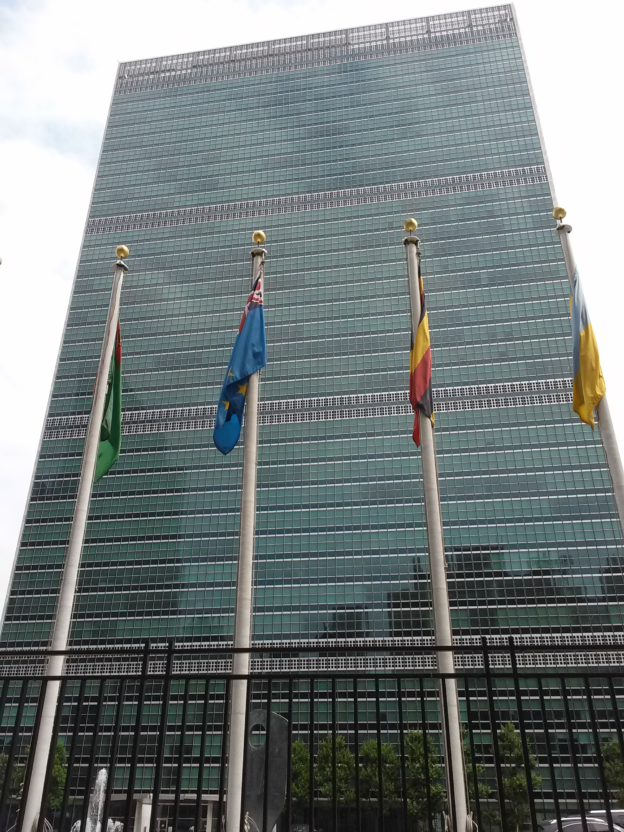
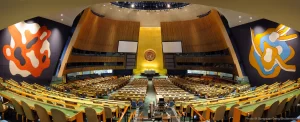 During the week of Tuesday, May 30 – Friday, June 2, the United Nations Building in New York City was the scene of the Second Session of the Permanent Forum of People of African Descent (PFPAD). The Permanent Forum was created after several international activists, including civil society advocates, had called for a standing committee to take actions in support of Afrikan People and People of Afrikan Descent that had heretofore not been within the authority of other United Nations bodies such as the Working Group of Experts on People of African Descent (WGEPAD).
During the week of Tuesday, May 30 – Friday, June 2, the United Nations Building in New York City was the scene of the Second Session of the Permanent Forum of People of African Descent (PFPAD). The Permanent Forum was created after several international activists, including civil society advocates, had called for a standing committee to take actions in support of Afrikan People and People of Afrikan Descent that had heretofore not been within the authority of other United Nations bodies such as the Working Group of Experts on People of African Descent (WGEPAD).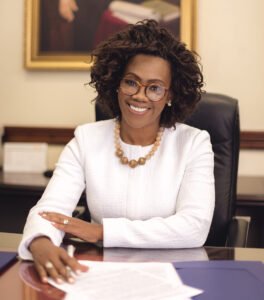
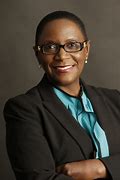
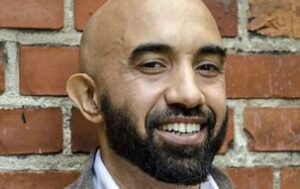
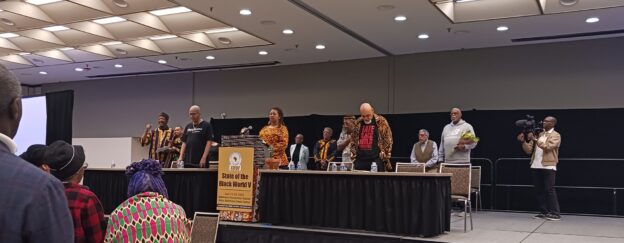
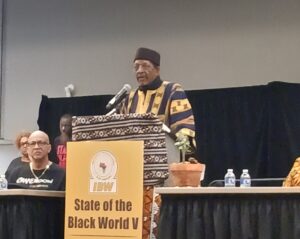
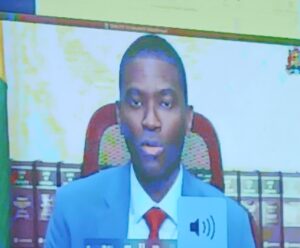
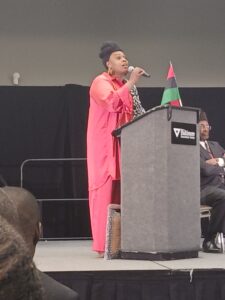
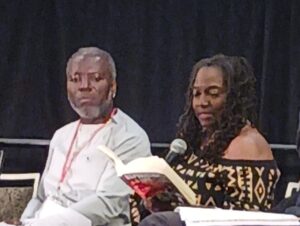
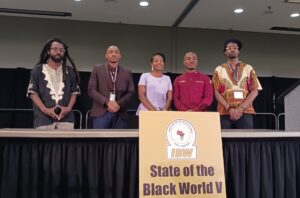
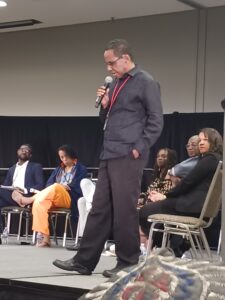
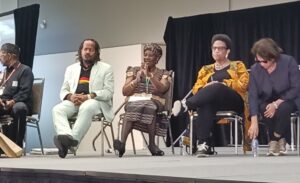
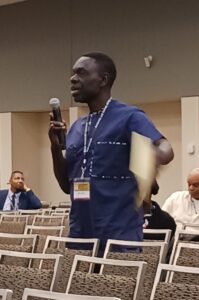
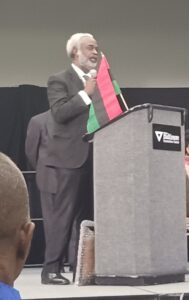
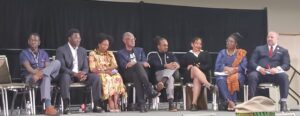
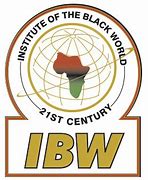
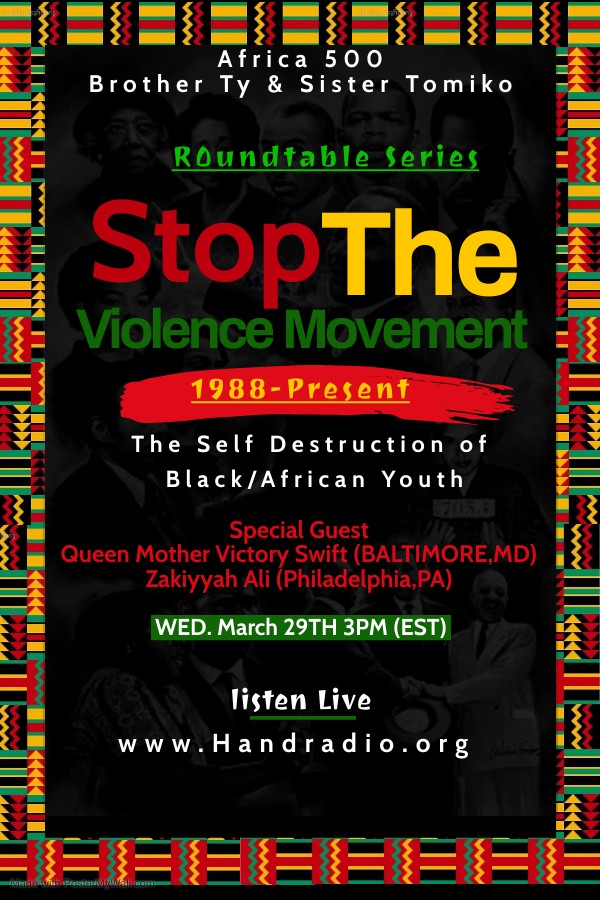
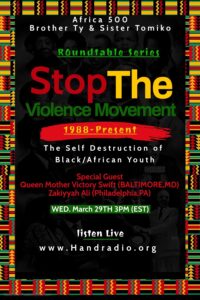 The Wednesday, March 29 edition of Africa 500 continues the conversation that was started the previous week as Sis. Tomiko and Bro. Ty once again welcome Queen Mother Victory Swift (Our Victorious City-Baltimore, MD) and Mama Zakiyyah Ali (Philadelphia, PA). The topic is part of Africa 500’S Roundtable Series, The Stop the Violence Movement, 1988-Present, The Self-Destruction of Black/African Youth.
The Wednesday, March 29 edition of Africa 500 continues the conversation that was started the previous week as Sis. Tomiko and Bro. Ty once again welcome Queen Mother Victory Swift (Our Victorious City-Baltimore, MD) and Mama Zakiyyah Ali (Philadelphia, PA). The topic is part of Africa 500’S Roundtable Series, The Stop the Violence Movement, 1988-Present, The Self-Destruction of Black/African Youth.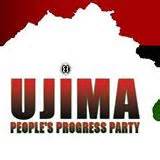 Hi Friend,
Hi Friend,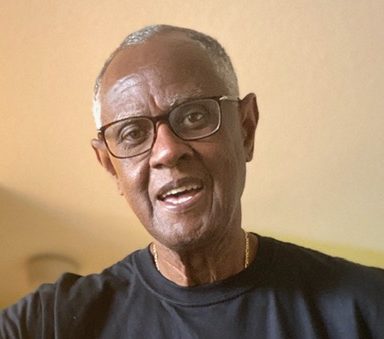 events that have been held over the years by Congress Member Karen Bass (D-California), who is also the current leader of the Congressional Black Caucus (CBC). Mr. Foote has been engaged in lobbying US government officials and international businesses to take a more Afrika-friendly approach to their activities for several decades, choosing to do much of his work “on the inside” to influence policy and practice. Mr. Foote has always approached discussions with Pan-Afrikan activists and fellow concerned Afrikan Diasporans in a positive and cordial manner, and he has often been receptive to a variety of viewpoints regarding the liberation and uplift of Afrikan people. Though he has interacted with more political and corporate types than many activists would care to, he has been a committed, hard-working advocate for Afrikan people for the decades I have known of him and his work.
events that have been held over the years by Congress Member Karen Bass (D-California), who is also the current leader of the Congressional Black Caucus (CBC). Mr. Foote has been engaged in lobbying US government officials and international businesses to take a more Afrika-friendly approach to their activities for several decades, choosing to do much of his work “on the inside” to influence policy and practice. Mr. Foote has always approached discussions with Pan-Afrikan activists and fellow concerned Afrikan Diasporans in a positive and cordial manner, and he has often been receptive to a variety of viewpoints regarding the liberation and uplift of Afrikan people. Though he has interacted with more political and corporate types than many activists would care to, he has been a committed, hard-working advocate for Afrikan people for the decades I have known of him and his work.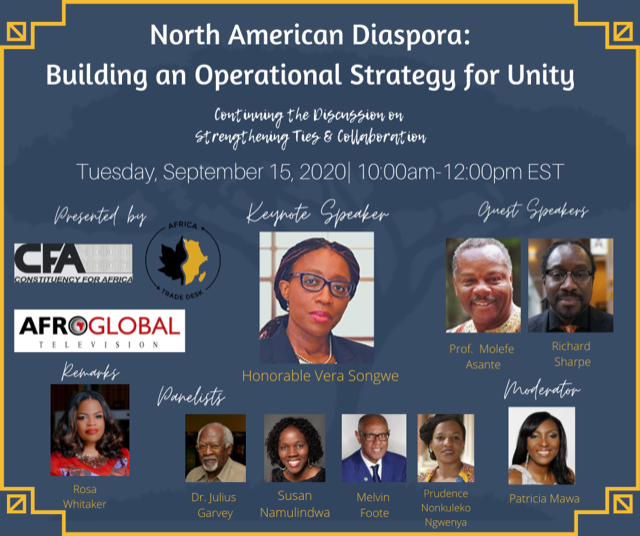 The keynote speaker for this September 15th forum will be the Honorable Vera Songwe, the Executive Secretary for the United Nations Economic Commission for Africa, based in Addis Abeba. Ms. Songwe will be introduced by the Hon. Rosa Whitaker, the President of the Whitaker Group, based in Accra, Ghana and Washington. The forum will also feature the acclaimed scholar, Dr. Molefi Kete Asante, Professor and Chair, of the Department of Africology at Temple University in Philadelphia, and the Co-Founder of the Afrocentricity International.
The keynote speaker for this September 15th forum will be the Honorable Vera Songwe, the Executive Secretary for the United Nations Economic Commission for Africa, based in Addis Abeba. Ms. Songwe will be introduced by the Hon. Rosa Whitaker, the President of the Whitaker Group, based in Accra, Ghana and Washington. The forum will also feature the acclaimed scholar, Dr. Molefi Kete Asante, Professor and Chair, of the Department of Africology at Temple University in Philadelphia, and the Co-Founder of the Afrocentricity International.